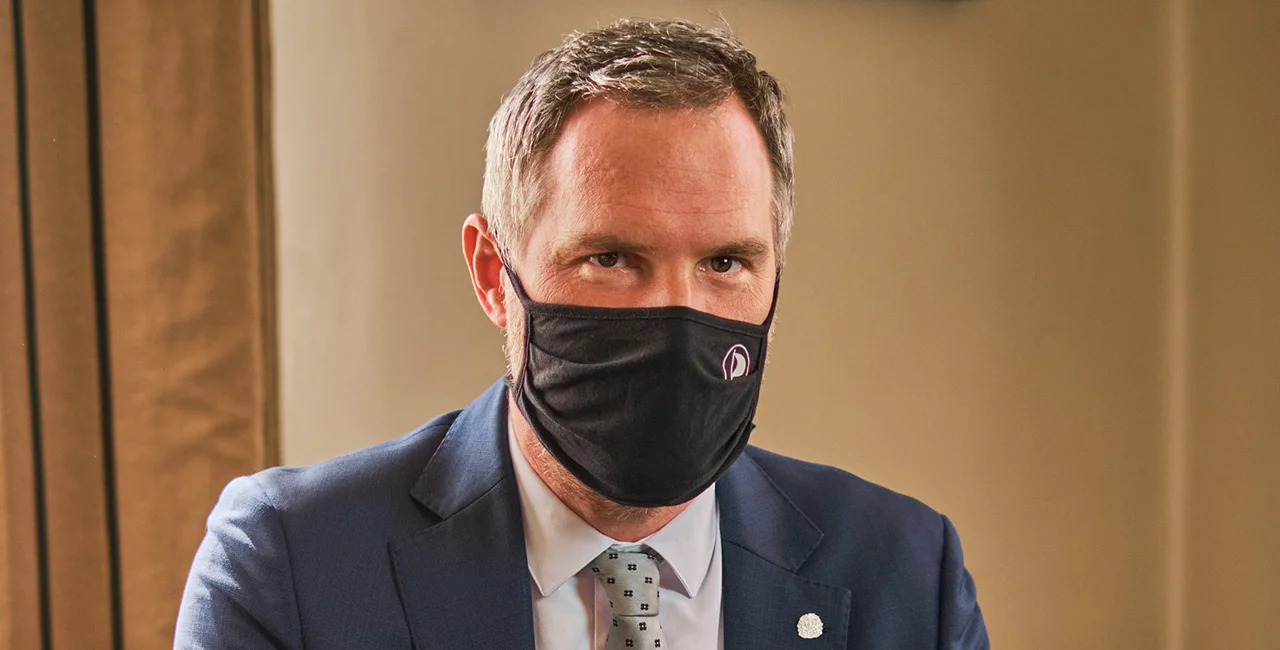The recent surge in COVID-19 cases in Prague and the rest of the Czech Republic has caught the attention of international media, and last night Prague Mayor Zdeněk Hřib discussed the current situation on BBC's Newshour with presenter Tim Franks.
You can listen to the full BBC Newshour report, which discusses the rise in COVID-19 cases across Europe, at BBC Sounds for the next month. The segment about Prague featuring Hřib begins at about 2:30.
Hřib, a member of the Czech Pirate Party, laid most of the blame for the current situation on the too-early easing of anti-COVID-19 regulations. He pointed to Prime Minister Andrej Babiš, who notably overruled former Health Minister Adam Vojtěch regarding new face mask regulations prior to the current surge.
Earlier this week, Babiš admitted that this was an error in a televised speech.
"The fact is that the situation has gotten very serious in the Czech Republic in the recent weeks. The daily rate of new cases is over 2,000 in the whole country," Hřib told Franks.
"The problem is that due to the early introduction of strict measures in the spring trhe Czech Republic managed the first wave very well. But after the long-lasting State of Emergency and lockdown there was pressure from the public, and the central government released the measures, and unfortunately the measures are relaxed almost completely."
"The public had experienced certain relief that life was getting back to normal but the epidemiological situation started to get worse in August and has worsened dramatically in September."
"Certainly people are very reluctant to go back into lockdown but at the same time stricter measures are currently needed. The problem also lies in the fact that certain politicians that certain people, and I'm talking about, for example, our Prime Minister, have violated the recommendations they were giving people. For example, our Prime Minister recommended all citizens stay at home, do not go for vacation abroad, but he himself went abroad for vacation. So it's very hard then to persuade people that they should adhere to the recommendations."
Franks reminded Hřib of the now-infamous "farewell to the virus" dinner party that "crammed" (Franks' terminology) 2,000 people onto Prague's Charles Bridge, and the message that it sent to the Czech public.
"The action was done completely according to the regulations at that time. The fact is that we do not have any cluster of the epidemic from this type of event," Hřib responded.
Franks countered that it was more about the message sent to the public, and quoted a recent survey claiming that while 83% of Czechs under 34 stuck to the rules in March, only 28% do so currently.
"It will be very hard [to convince people to follow the rules again]," Hřib responded. But Prague's mayor showed some confidence in new Health Minister Roman Prymula to be able to do so.
"I think that he might be more successful in the restrictions because one of the problems lied in the fact that the Prime Minister was actually blocking some of the restrictions due to the fact that people on Facebook were against it. So this was a moment that the populism of the government interfered with the recommendations of healthcare professionals."
Franks also asked Hřib about his concerns for Prague, which in better times is one of the world's most-visited tourist destinations, and the impact the COVID-19 pandemic has been having on the Czech capital's economy.
"The problem is that with the onset of the COVID-19 crisis the levels of tourism have dropped dramatically," Hřib replied.
"And this of course brings a lot of troubles to the people who provide these services in our city."












 Reading time: 3 minutes
Reading time: 3 minutes 





























